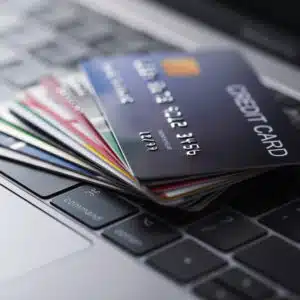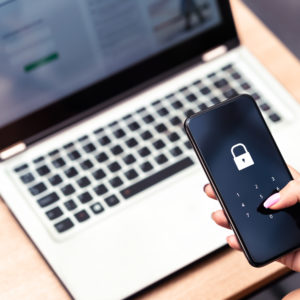
If you managed to survive the Great Recession of 2008-2012 relatively unscathed financially, then you might be holding on to a good credit score.
And that’s an important factor in the next few years as more Americans rebound from the crisis and look for lending opportunities for a new home, car, or business.
Banks have tightened their lending requirements in recent years, and unless you have good credit, you may not be able to secure any kind of loan.
This goes for refinancing, too.
Table of Contents
A few years ago we built our dream home and during the financing process, our bank requested our credit score.
Since then we’ve refinanced twice and each time our banker had to request our credit score.
Well, to obtain any kind of loan to buy a house, good credit is the absolute key to finding a mortgage today.
Bankrate notes that unless your credit score is 620 or higher, you’d best forget about trying to find lending right now.
It just won’t happen.
When to Buy, How to Buy
Most lenders are seeking mortgage applicants to have a minimum credit score of 680 to comply with new government lending guidelines administered by Freddie Mac and Fannie Mae. Some applicants with credit scores as low as 620 are finding some FHA loans, but most lenders are only accepting credit scores higher than 620.
Buying a new car is no different right now. If you’re looking to upgrade your wheels, you’ll need good credit to apply for car loans. U.S. auto sales were increasingly higher this summer than over the past few years. Forbes reported that U.S. automakers saw sales shoot up nearly 20 percent in August, which was the best new car sales month since early 2008.
This was a direct result of three big factors: bottled-up demand for new models from car buyers, zero-percent financing offered to buyers with excellent credit, and a better selection of gas-friendly cars to help spur buying, in a year rife with even higher gas prices.
So if good credit is the key to upgrading your home or car opportunities, it’s best to figure out a way to start increasing your credit score. Using a few tips for bettering your credit score means greater financial flexibility in the coming years.
Pay Off Low-Balance Cards First
This tip to pay off your low-balance credit cards first comes from self-proclaimed radio and TV financial guru Dave Ramsey, and it is not without controversy. Ramsey suggests that by paying off your lowest credit card balances first and zeroing them out, you will achieve a matter of satisfaction that will continue to spur you on to paring down the rest of your debt.
I know many people who used Lending Club or another P2P lender to get their rates down and then pay off the new loan.
P2P loans skip the banks. You request your loan on one of the sites, and then you wait for people to invest in the loan.
As far as the application process, you’ll have to go through similar paperwork as you would with a traditional personal loan from a bank. You will have to show proof of occupation, some financial statements, and much more.
If you decide to apply for a loan through Lending Club, you can get up to $40,000 with a rate as low as 6%.
Secured Credit Cards
A secure credit card is a simple way to beef up your credit score. A secure credit card is like a credit card with training wheels.
Secure credit cards are just like any other credit card, except you have to deposit money before you can get one. This is the secured part. The company wants some guarantee that you’re going to pay the credit card bills.
One difference between companies is what they do with the money you put in. Some companies allow that deposit to earn interest, while others don’t. Nobody is going to give you massive interest rates, but money is money.
With secured credit cards, there is still a chance you’ll get rejected, but the requirements are much less strenuous than with a traditional option.
Once you’ve decided to cancel your secured credit card, you’ll notify the company and they will send the deposit money back to you.
As far as credit score goes, you’ll need to have a credit score of at least 600. Also, you’ll need a decent credit history. If you’re just not getting started with your credit history, then you should probably look elsewhere.
Know Your Credit History
You are entitled to a free credit report every year. You should definitely take advantage of this opportunity. A quick visit to freecreditreport.com will guide you in getting a copy of your report from one of the three main credit reporting agencies.
You should also check for any possible errors between your online identity and credit score. Sign up for an online identity evaluation at Lifelock to assess if your accounts are in line with what credit reporting agencies are finding.
In 2011, identity fraud increased by 13 percent, with more than 11.6 million adults in the U.S. becoming a victim of identity fraud. The average cost identified with identity theft comes to about $5,000, and some reports indicate that it takes a year or more for identity theft victims to even notice that identity elements have been stolen.
Using a credit monitoring and identity theft service like Lifelock can help prevent any out-of-pocket financial expenses. Being notified soon after identity theft happens enables users to stop it before it moves into higher amounts.
Automate Your Payments
Ramit Sethi, best-selling author of “I Will Teach You How to Get Rich,” offers credit-saving tips for anyone who’s interested in reducing debt and becoming more financially free. He reveals that 35 percent of your credit score (the largest portion) reflects your payment history.
So if your history reflects late or missing payments, it can cause your credit score to drop 100 points, increase your APR on credit card bills, and add a lot more money to your car or house payments.
So his solid advice is to automate your credit card payments. If you forget to write a check or make a one-time online payment, it can affect your credit score in much more damaging ways. Of course, this strategy doesn’t take into account deeper issues like if you’ve lost a job or your home, and you’re simply unable to make a payment.
Knowing how to reduce credit card payments and increase your credit score can make a world of difference in your life when it comes to applying for loans for new cars, homes, or more. Knowing your fiscal responsibility and how to overcome the liabilities will help your future grow more stable.








Automating payment of credit cards is easy if you have online banking. I set up all of my credit card accounts that are used regularly to send some multiple of the minimum payment. If something slips through the cracks, my account will always be reported to the bureaus as current.
Missing one monthly payment by 3o days will ding your score, and the delinquency lingers for seven years on your report.
It should be noted that the correct website for the free annual credit report is www.annualcreditreport.com. 🙂
If anything you should be motivated to raise your credit score before buying a house for the simple fact that it will cost you less money. The higher your credit the lower your interest rate will be.